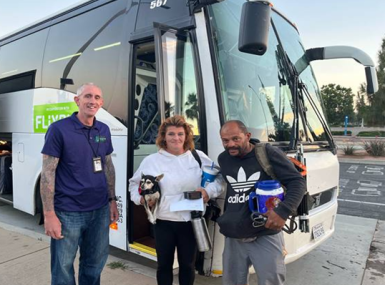Biden administration ends implementation of the 'public charge' rule
Author

Eryn Hurley

Seamus Dowdall
Upcoming Events
Related News

Key Takeaways
On March 9, the U.S. Department of Homeland Security announced in a press release that the agency would no longer seek to implement the 2019 “public charge” rule, a policy that significantly expanded the criteria immigration officials use to determine whether an individual seeking immigration status is likely to become dependent on the federal government. The announcement is the latest action by the Biden Administration that aims to reverse and address immigration policies enacted by the previous administration, and the action falls in line with initiatives first outlined in a series of Executive Orders released last month.
The “public charge” rule, originally finalized and implemented in December of 2019 under the Trump Administration, sought to broaden the scope of public benefit services that federal immigration services can consider when determining whether an immigrant is likely to become primarily dependent on the federal government for subsistence. NACo submitted public comments during formulation of the rule that stated the policy’s implementation may deter immigrants from accessing federal benefits for which they are legally eligible and subsequently increase reliance on local services. Additionally, counties expressed concern that the rule may increase compliance and administrative costs for counties that operate federal benefits programs, as well as potentially discourage residents, including children, from seeking assistance programs that would help mitigate the spread and economic impacts of COVID-19. A complete NACo analysis of the rule’s impact on counties can be found here.
The announcement comes at a time when counties are continuing to play a central role in ensuring the health and safety of all individuals, including immigrant populations. As counties continue this fight against the COVID-19 pandemic on the front lines, the rule will allow us to devote our full attention and resources to front-line providers of public health and safety as well as continuing to administer critical federal assistance to all eligible individuals.
Resource
Analysis of DHS Proposed Rule on “Public Charge”: Understanding the Proposed Rule and How It Could Impact Counties and Our Residents

Related News

Insights from county leaders on the future of early childhood care and education
NACo's Prenatal-to-Three breakfast and listening session gathered county leaders to identify barriers, explore solutions and support local leaders advancing their priorities.

Ohio county boosts community youth programs with ARPA funding
Hamilton County, Ohio invested ARPA dollars in community organizations through the INSPIRE Youth initiative.

Team approach, website help California county tackle homelessness
Riverside County, Calif. created a multidisciplinary team to better and more efficiently serve its unsheltered population and share success stories and data through a website.
